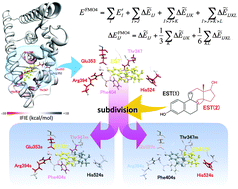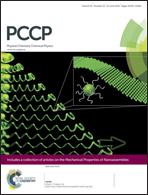Electron-correlated fragment-molecular-orbital calculations for biomolecular and nano systems
Abstract
Recent developments in the fragment molecular orbital (FMO) method for theoretical formulation, implementation, and application to nano and biomolecular systems are reviewed. The FMO method has enabled ab initio quantum-mechanical calculations for large molecular systems such as protein–ligand complexes at a reasonable computational cost in a parallelized way. There have been a wealth of application outcomes from the FMO method in the fields of biochemistry, medicinal chemistry and nanotechnology, in which the electron correlation effects play vital roles. With the aid of the advances in high-performance computing, the FMO method promises larger, faster, and more accurate simulations of biomolecular and related systems, including the descriptions of dynamical behaviors in solvent environments. The current status and future prospects of the FMO scheme are addressed in these contexts.


 Please wait while we load your content...
Please wait while we load your content...